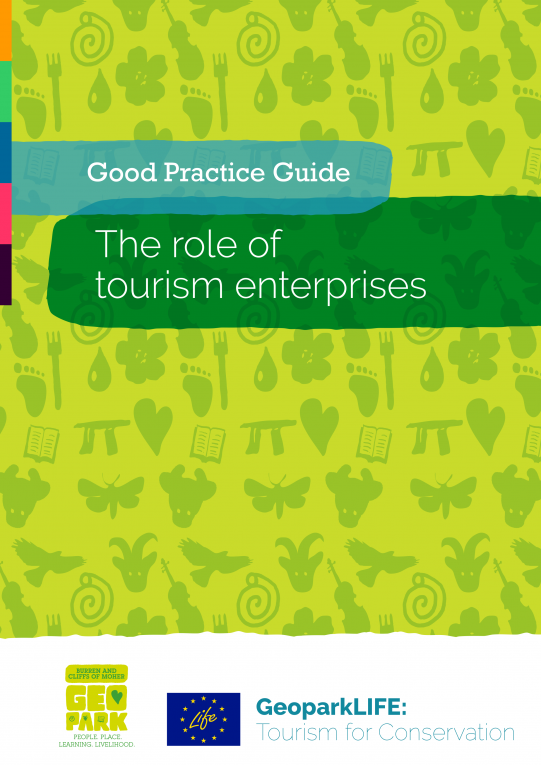The Code for destination managers
The Code of Practice for Sustainable Tourism toolkit is contained in an online system that can be adapted to the needs of different destinations.
Overview of the online Code of Practice system
Video 2 is a more in-depth look at the details of the system and can be viewed by clicking here
Benefits of the Code of Practice system
The Code of Practice provides a number of benefits to destinations seeking to promote sustainable tourism standards amongst tourism operators:
- It applies to all types of tourism operator, irrespective of activity or scale
- It provides a common understanding across enterprises of the role they play in sustainable tourism practices
- Tourism operators easily understand what’s being asked of them
- It actively encourages all tourism enterprises in the region to start the journey towards sustainability (it does not require excellence in sustainable tourism management from the outset)
- It maps a path to progress to higher levels of sustainable tourism practice
- It allows targeting of training and supports
Features of the Code of Practice system
Sustainable Tourism Principles
The Code comprises 6 core principles. Each principle is broken down into a number of performance measures i.e. actions a business can take in order to implement this principle. While enterprises are not required to implement all performance measures from the outset, they are encouraged to work towards them all over time. All performance measures can be determined by the destination managers and tailored to the specific needs of their territory. They are framed within the elements of effective sustainable tourism practice defined by GSTC and ETIS. Click here for the Burren & Cliffs of Moher Geopark Code of Practice To Do List.
Collection of Consumption & Customer Data
An important step in adopting the Code is that the tourism enterprise measures and monitors the use of resources – waste, water, energy. The monthly data is keyed into the system along with the number of visitors they host month-by-month. This generates a resource usage benchmark for each enterprise which they can track over time. The system also aggregates the total resource usage or consumption for all businesses using the system. A Carbon calculator using the measurement system recommended by the Environmental Protection Agency Ireland, records the aggerated carbon emissions for the whole Network. This can be used to monitor and track group/destination performance over time.
Providing Evidence of Performance
Each tourism enterprise must compile and document evidence of implementation of all measures. This is the process used by all certifying bodies and so introduces a discipline of filing and reporting that will stand the enterprise in good stead as they progress on their journey to sustainability. The system enables a tourism operator to upload and document evidence for each action (measure). Businesses are supported by video tutorials, downloadable guides and links to external resources. The system generates an indicative score and overall performance band rating.
Independent Review & Verification
The final submission is then desk-reviewed on the system by an independent evaluator who provides qualitative feedback to the enterprise and assesses whether the evidence provided is sufficient to support the score. On-site verification visits of a representative random sample of the tourism enterprises are undertaken. The purpose of the visits is to verify that the evidence submitted and claims made in the Code of Practice submission are reflected in the delivery of the visitor experience. The objective is to establish the integrity and credibility of the system as a standard for sustainable tourism practice in the region.
Guide to working with tourism businesses
Through the learnings of the project we have developed a suite of destination management tools, guides. Below is the guide to working with tourism businesses at a destination level. We also developed guides, toolkits, case studies and checklists for managing tourism at heritage sites and for developing stakeholder partnership skills which can be found here
